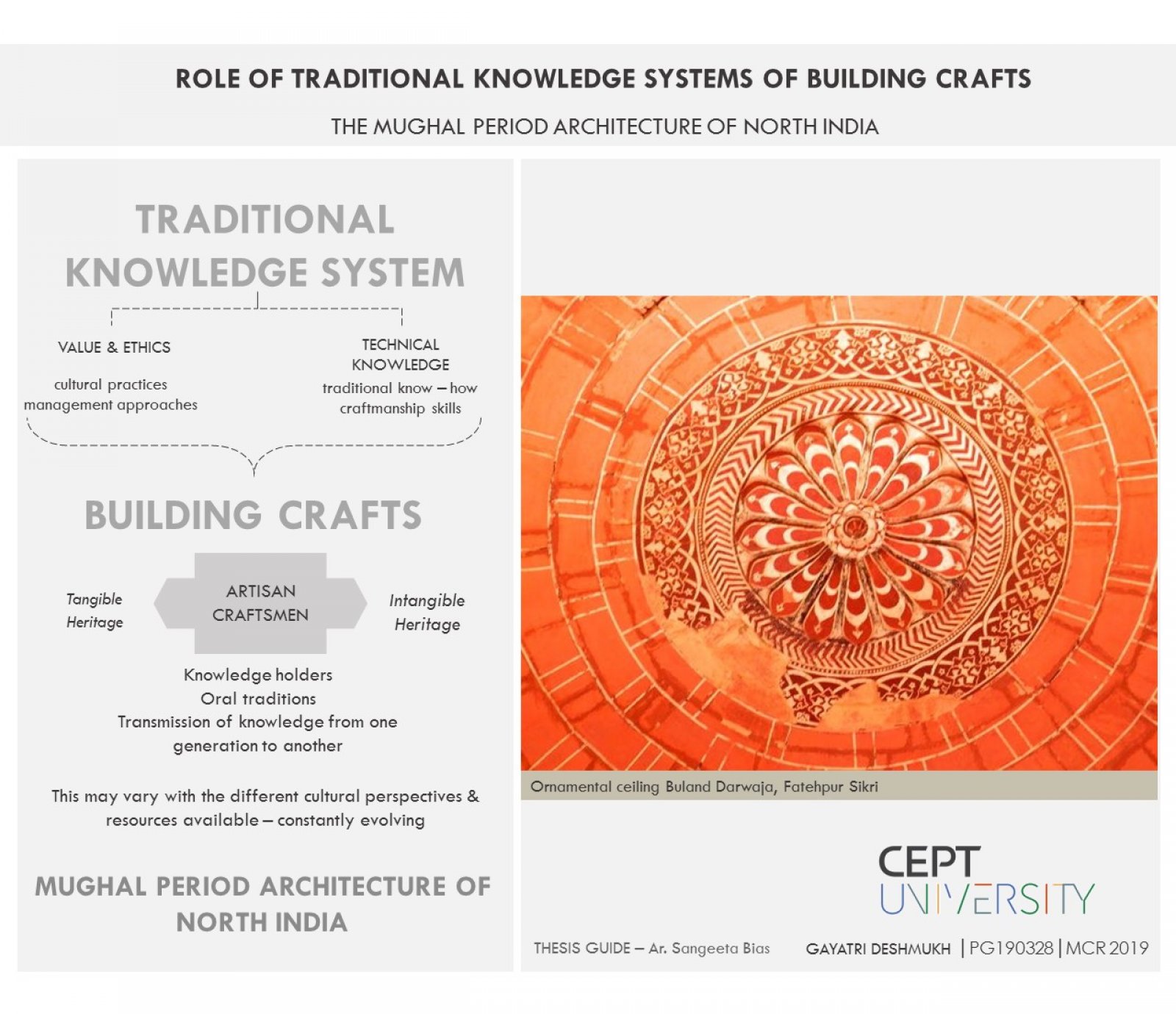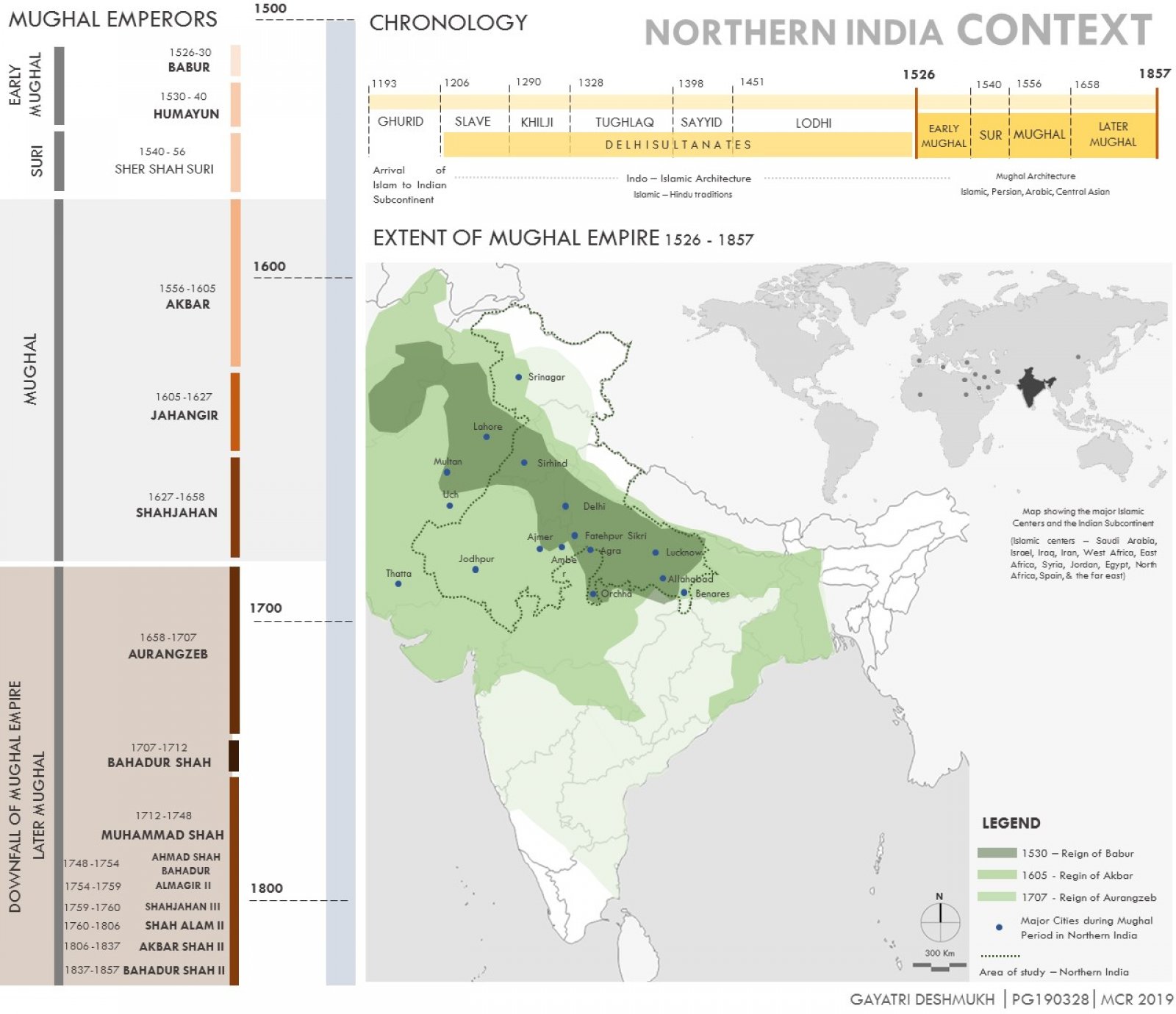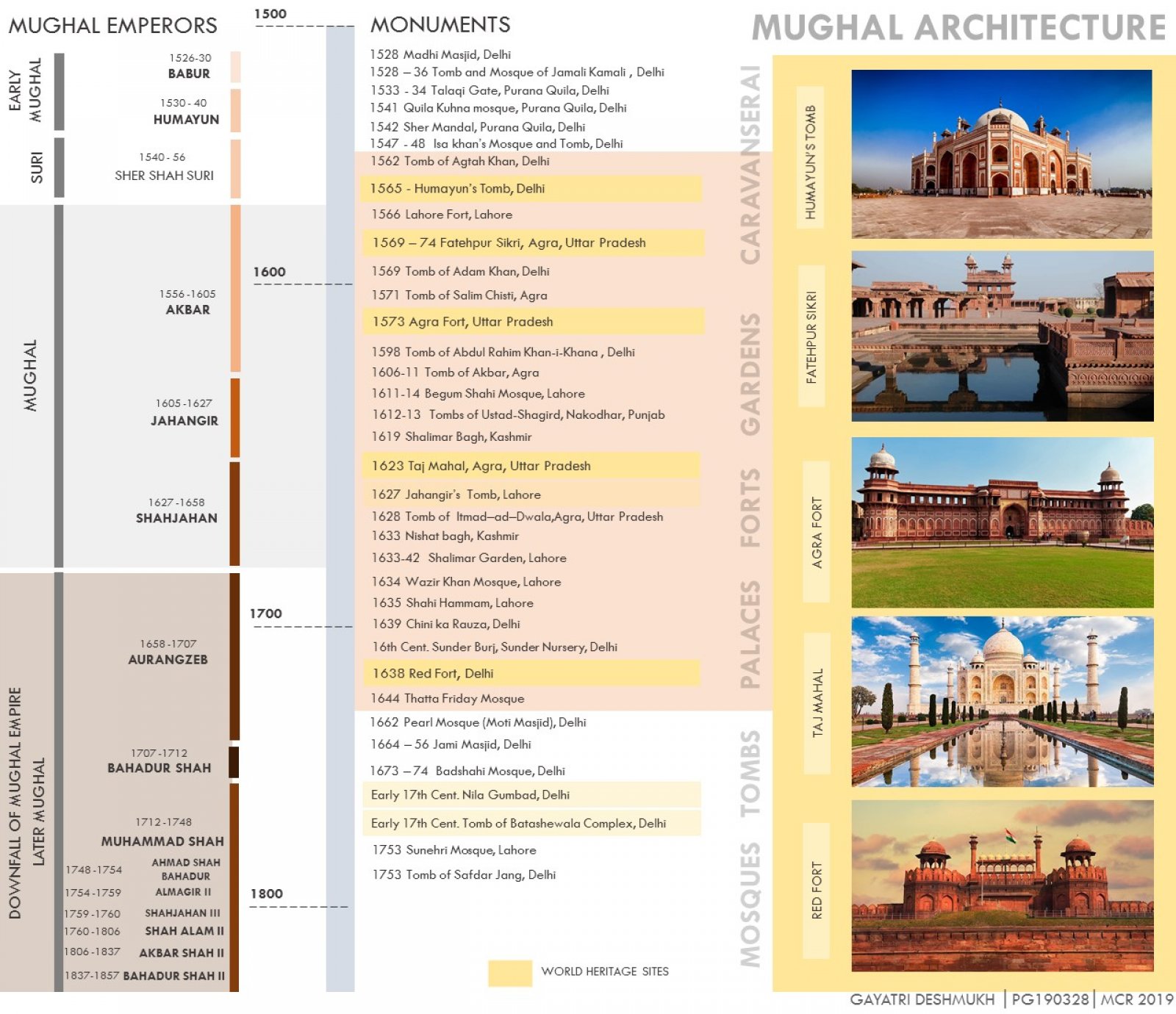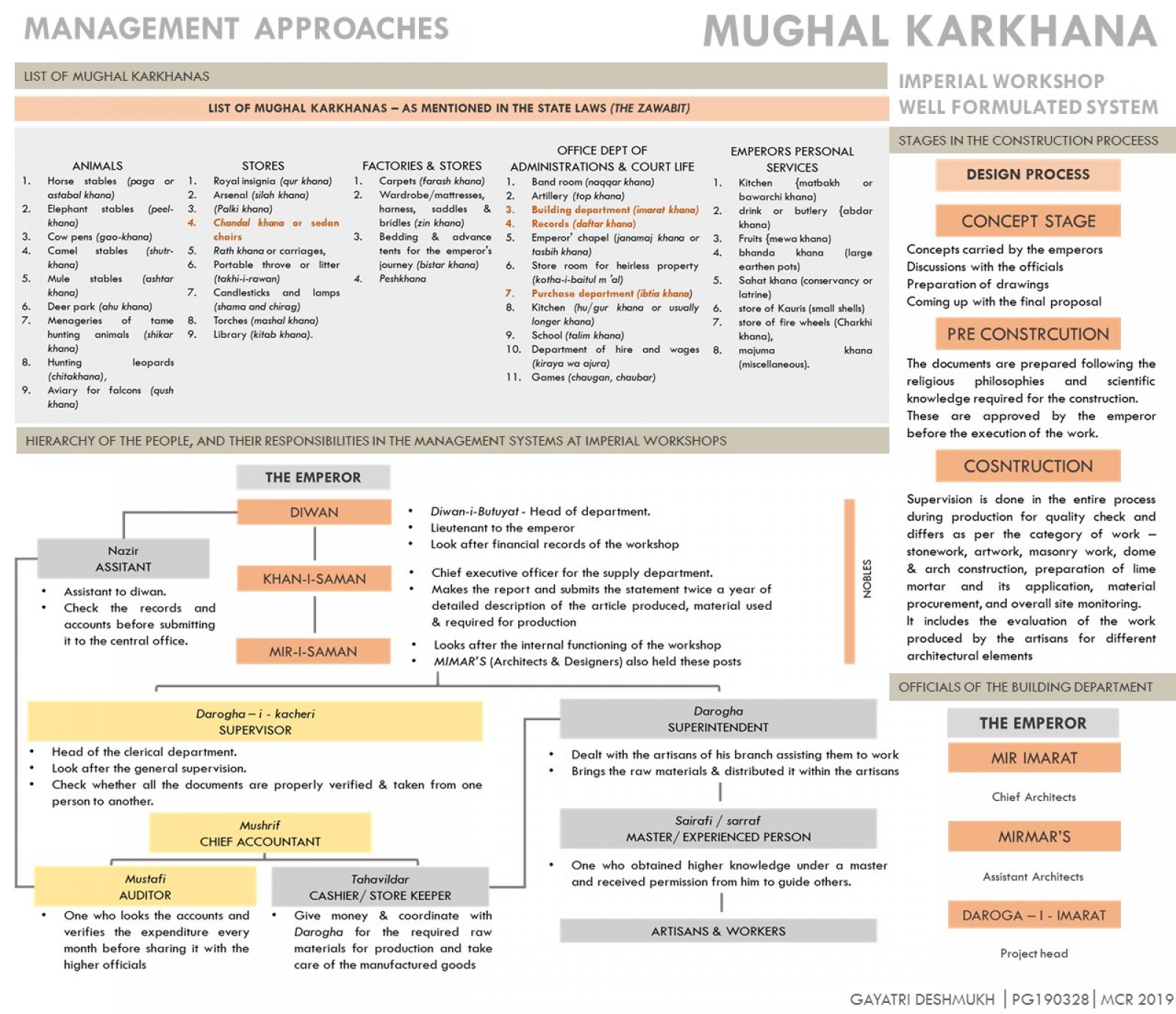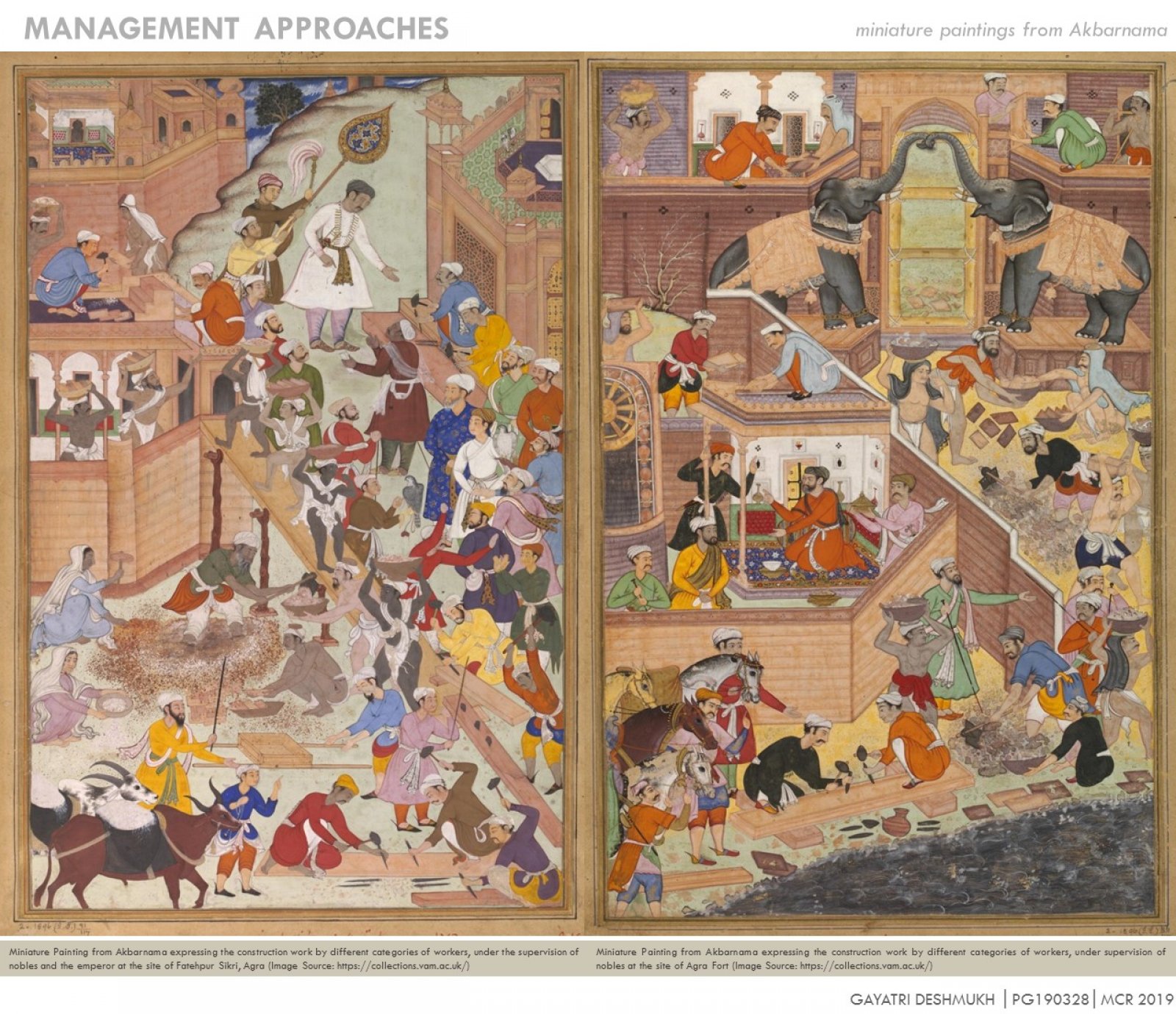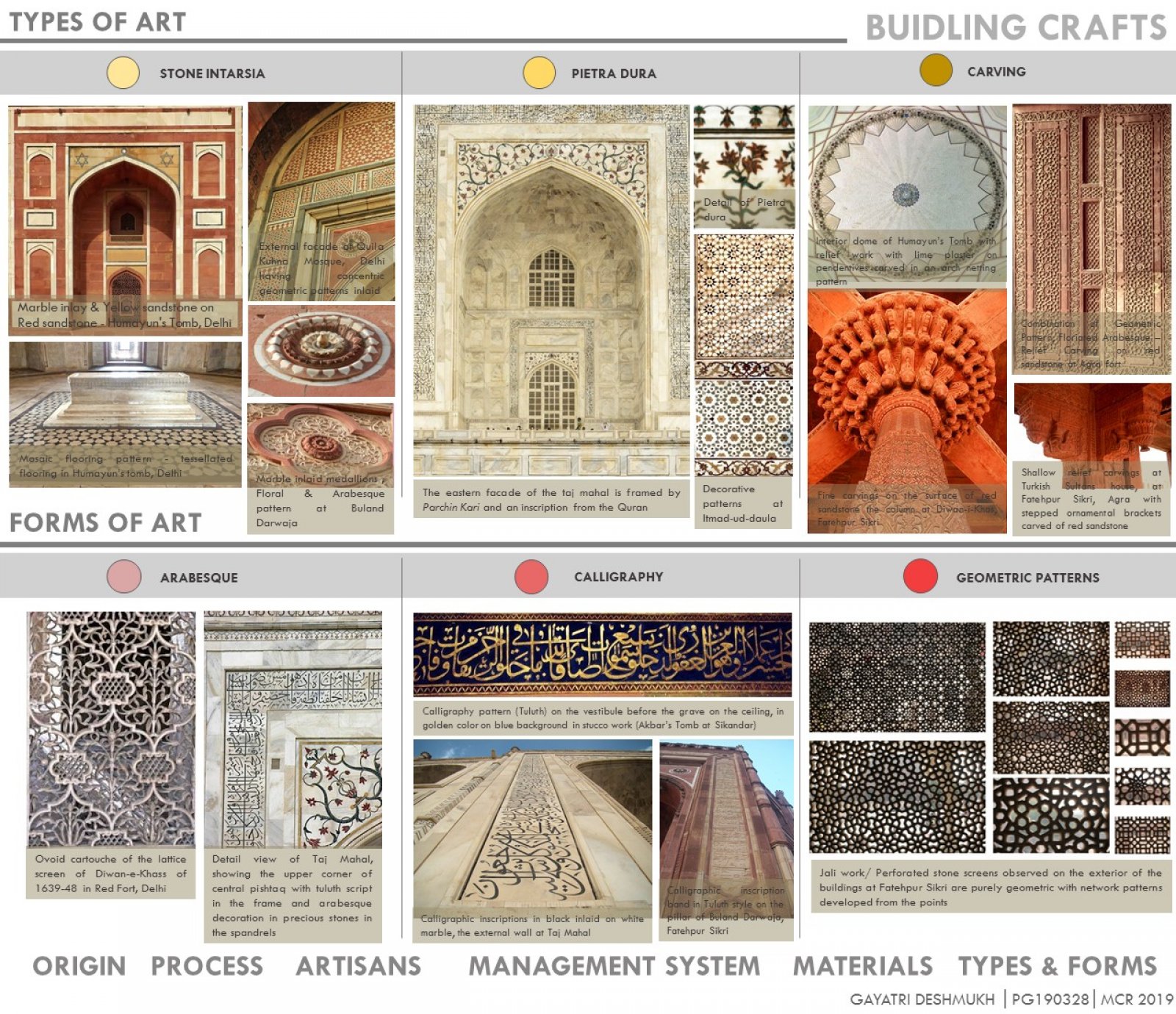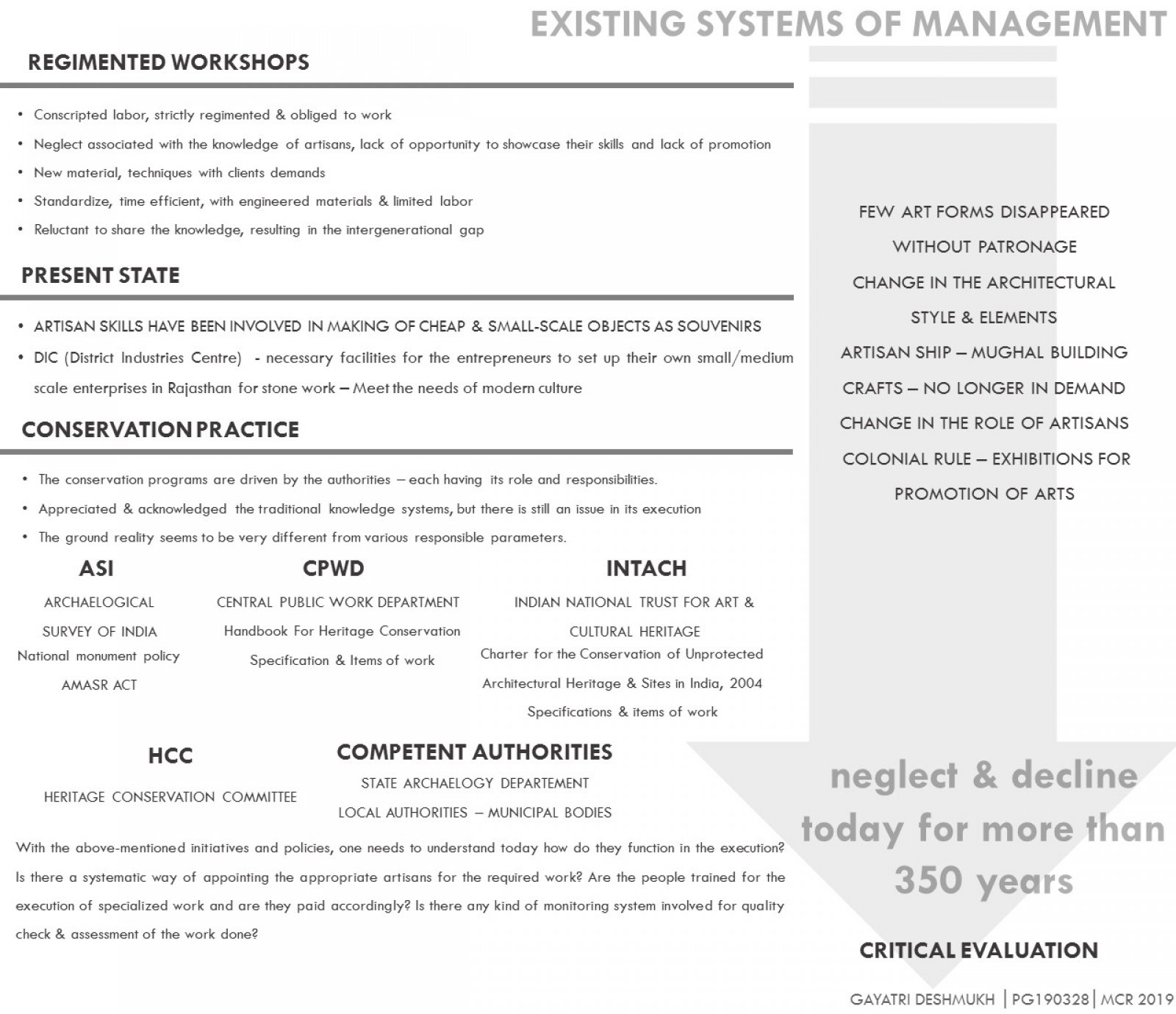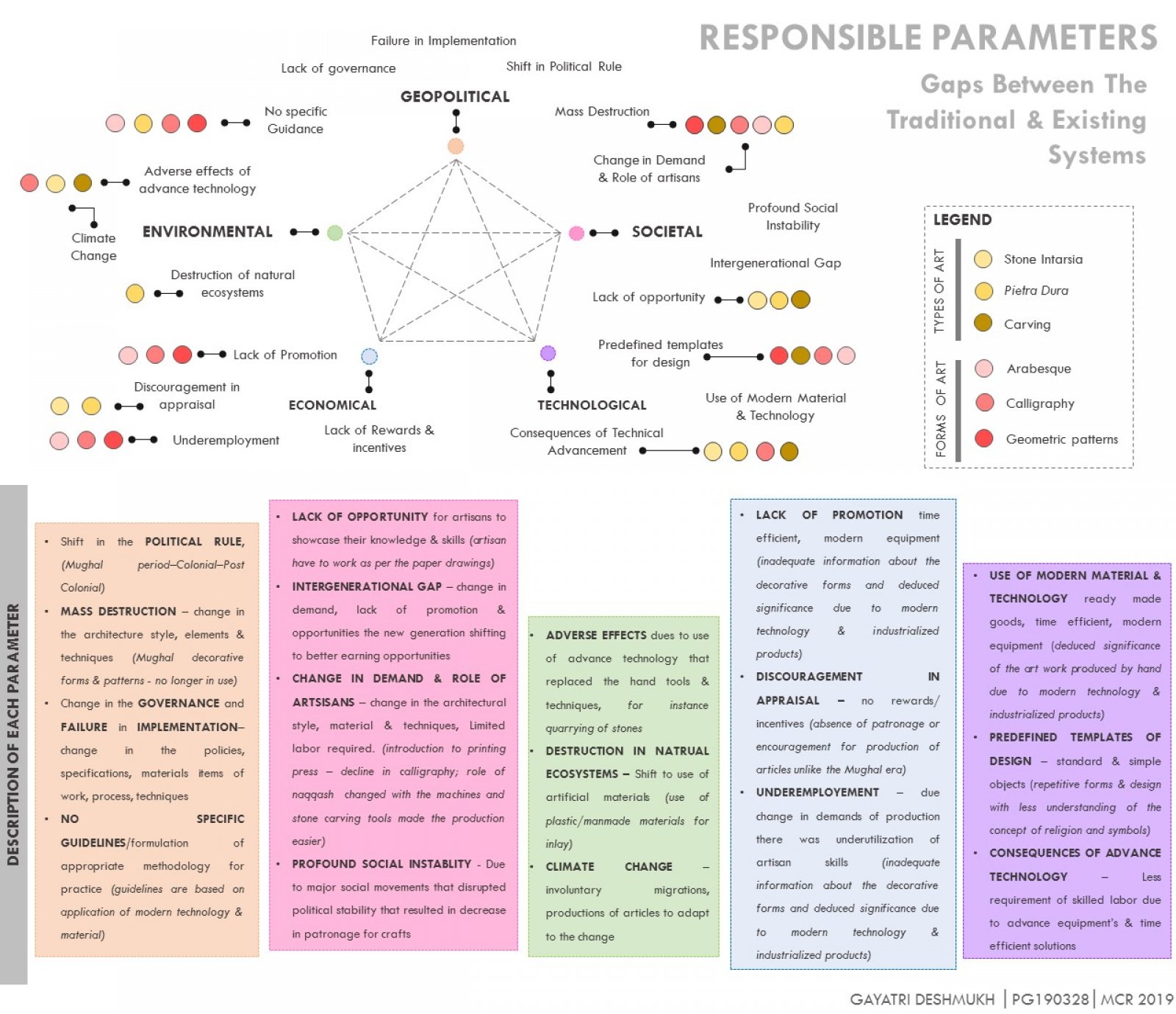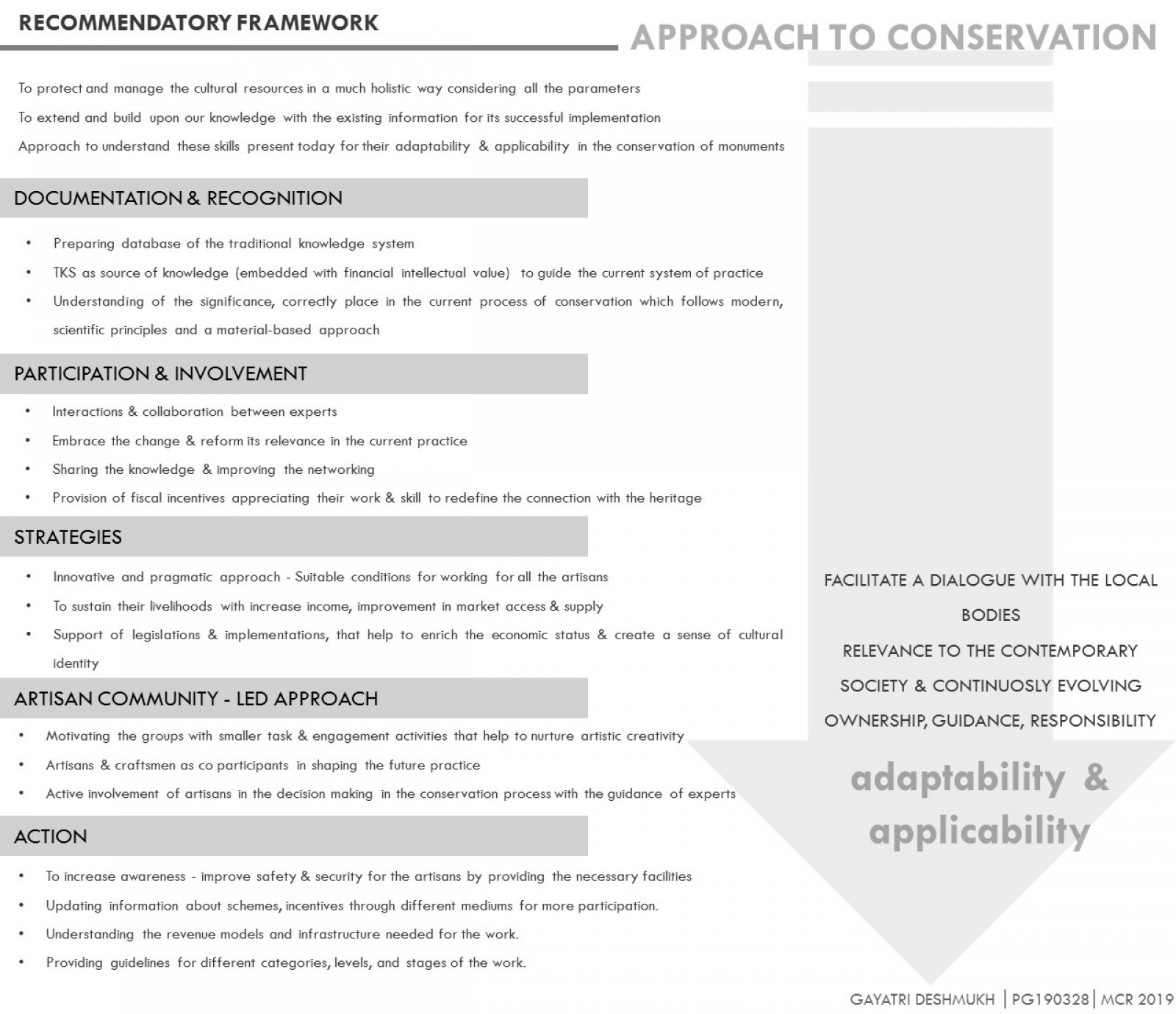Your browser is out-of-date!
For a richer surfing experience on our website, please update your browser. Update my browser now!
For a richer surfing experience on our website, please update your browser. Update my browser now!
Traditional Knowledge Systems (TKS) are closely linked to the context & culture of the place. In the Indian Subcontinent, these are linked to & created by the communities, where they build a strong connection between the community & built heritage with the potential to benefit that community & to others. Artisans & craftsmen are the holders of this traditional know-how. With the above understanding, thesis focuses on the TKS of the Mughal period which belongs to one of the most creative & richest periods, based on the philosophies of its invaders having artistic influence from all over the world. Mughal invaders ruled on the maximum population for almost over 300 years. Being one of the wealthiest periods for art and architecture of Indo – Islamic style, it influences the development of the architectural styles in the later period. Building crafts developed during this era were mainly the decoration of surfaces, carvings & joinery. The report explains the traditional management systems of Mughal karkhanas which helped in the production of these crafts contributing towards the architecture, developed in the context of Northern India. Mughal karkhanas were the workshops that acted as large-scale employment for people, vocational training centers, & well-operated systems to keep the empire flourishing. The architects & artisans of the workshops were highly trained & knowledgeable with an understanding of specific use materials, constructional technology & its process which is evident in the Mughal monuments. However, with the trend of industrial growth & emerging modern discourse in the context, these TKS have been neglected over a while. This today led to a difference between the traditional and existing contemporary practices. The understanding of TKS will help to strengthen the relationship between the artisan community & the heritage, thus benefiting the conservation of the built heritage. Recent management systems in the context have acknowledged the TKS in their theories, but there is still an issue in its execution. The ground reality seems to be very different from various responsible parameters. To move the conservation practice forward, the thesis here attempts to understand the role of Mughal karkhanas, encourage the development of arts produced, analyze the gaps with existing system & develop a harmonious way to blend both, where they are compatible and mutually benefited for the conservation of the Mughal Heritage. To view a five minute elevator pitch of this thesis' research idea(s), please click on the link displayed.
View Additional Work